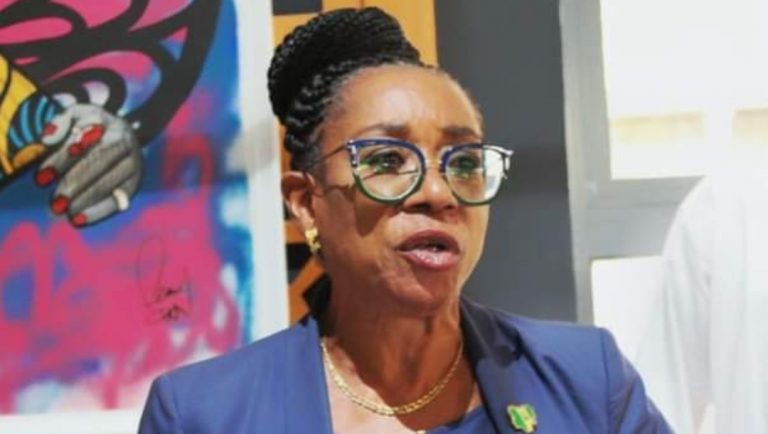By Capital Watch Media

The establishment of the Ministry of Tourism under the administration of President Bola Tinubu was initially received with great optimism by stakeholders in the hospitality and tourism sectors. It signified recognition at the highest levels of governance that tourism, a sector with vast untapped potential, could be a significant contributor to Nigeria’s economic growth, job creation, and cultural diplomacy. Appointing Mrs Lola Ade-John to spearhead this newly established ministry was also seen as a forward-thinking decision, considering her strong professional background and diverse industry experience. However, the sudden dissolution of the Ministry of Tourism after only a few months, leading to Ade-John’s resignation, has sparked discourse on the achievements, challenges, and missed opportunities during her brief tenure.
This commentary seeks to critically evaluate Ade-John’s performance and the strides she was able to achieve, even amidst the overwhelming challenges of a short-lived ministry. It also highlights the underlying factors that may have affected her performance and the larger implications for tourism development in Nigeria. It hopes to generate the desired discourse in setting the pace for the new Ministry of Arts, Culture, Tourism, and Creative Economy.
From the outset, she inherited a sector laden with potential but hampered by numerous challenges. The tourism sector in Nigeria has long struggled with issues such as inadequate infrastructure, insecurity, a weak regulatory framework, poor funding, and underutilisation of the country’s cultural and natural resources. Moreover, the lack of coordination between tourism and other critical sectors, such as transport, aviation, education, and trade, further complicated efforts to develop tourism as a significant economic driver.
Despite these challenges, expectations were high. The creation of a dedicated Ministry of Tourism was seen as an opportunity to place tourism on the front burner of national policy, create an enabling environment for private-sector investments, and develop a strategic roadmap for growth. Ade-John was expected to tackle these deep-rooted challenges while also navigating the politics of Nigeria’s often complex public administration.
In the few months that Mrs. Ade-John headed the Ministry of Tourism, she demonstrated a clear vision and a proactive approach to jump-starting tourism reforms. Despite the Ministry’s short lifespan, she laid the groundwork for several initiatives that could have transformed Nigeria’s tourism sector if given the time to mature.
One of the most notable achievements of the former minister was her swift effort to develop a tourism roadmap that aimed to tackle sectoral inefficiencies and bottlenecks. Early into her tenure, she initiated consultations with key stakeholders, including state governments, tourism operators, and international development partners. Her goal was to harmonise efforts across the different levels of government and the private sector. She also worked on proposals for legal reforms that would strengthen the regulatory framework, ensuring that the Ministry had the authority and tools to create a conducive business environment for tourism investments. Her pet project – revitalizing the tourism policy after over 20 years of review had been scheduled for industry review later in the month before the merger of the Ministry of Tourism.
Another significant stride made under Ade-John’s leadership was the forging of strategic partnerships with international tourism bodies and potential investors. Recognizing that Nigeria’s tourism industry cannot thrive in isolation, she worked to position Nigeria as a competitive destination within Africa and the global tourism landscape. The ministry engaged in talks with global players such as the United Nations World Tourism Organization and the African Union, with the aim of tapping into international expertise, securing technical support, and promoting Nigeria as a premier African destination. This kind of international engagement is essential for building credibility and attracting foreign direct investment, an area in which Nigeria has traditionally lagged in tourism. She has been able to partner with industry players in returning Nigeria to the WTM, London; an event the country had been missing for about 10 years. Now, the country shall be at the WTM come November 2024 without the architect of the country’s participation.
Also, one of Ade-John’s key strategies was her emphasis on cultural and domestic tourism. In light of the security challenges affecting international visitor arrivals, she saw domestic tourism as a low-hanging fruit. Her administration pushed for the development of local tourism circuits that would leverage Nigeria’s rich cultural heritage, festivals, and historical sites. A particular focus was placed on promoting less-travelled regions, with the hope of diversifying the tourism offerings beyond the well-known attractions in Lagos, Abuja, and Calabar. She has to her credit, visitation to lesser-known destinations within Nigeria among others. To achieve this, the former minister emphasized the need for collaboration with state governments, many of which were tasked with managing their own cultural and historical assets. She also advocated for an enhanced role for the private sector in promoting these assets through creative packaging and marketing.






